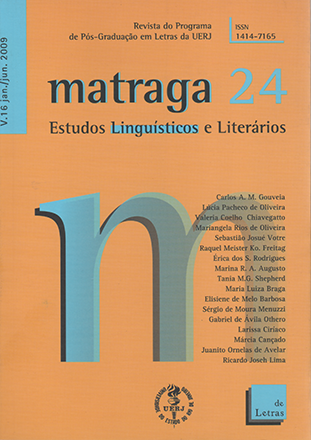Universal components of interrogative sentences: an introduction to Optimality Theory
Keywords:
optimality theory, syntax, interrogatives.Abstract
In this article, we seek to demonstrate the descriptive and explanatory power of two central ideas in Optimality Theory: (i) the idea that there can be conflict among grammatical constraints; and (ii) that these conflicts are solved by the ranking of the constraints. We illustrate these points with an analysis of the sentence patterns in question-formation, as shown in Ackema & Neeleman (1998). However, our analysis is different than A&N´s (1998), as we propose functional constraints acting in the formation of interrogative sentence patterns. We actually propose three constraints: Economy, Morpohological Marking and Focalization. As we understand, a grammar is a system of optimization in two senses: (i) its conditions are codifications of functional demands over the form of the sentences; and (ii) the interaction among these demands must include a way to solve eventual conflicts among them.
Downloads
Downloads
How to Cite
Issue
Section
License
Authorization
Matraga – Scientific Journal of the Post-graduate Program in Arts and Humanities of UERJ is authorized to publish the article submitted here, if it is accepted for online publication. It is attested that the contribution is original, that it is not being submitted to another publisher for publication, and that this statement is the expression of truth.
The works published in Matraga's virtual space – Scientific Journal of the Post-graduate Program in Arts and Humanities of UERJ will be automatically transferred, and your copyright is reserved to Matraga. Its reproduction, in whole or in part, is conditional on the citation of the authors and the data of the publication.

Matraga uses license Creative Commons - Attribution-Non-Commercial 4.0 International.





